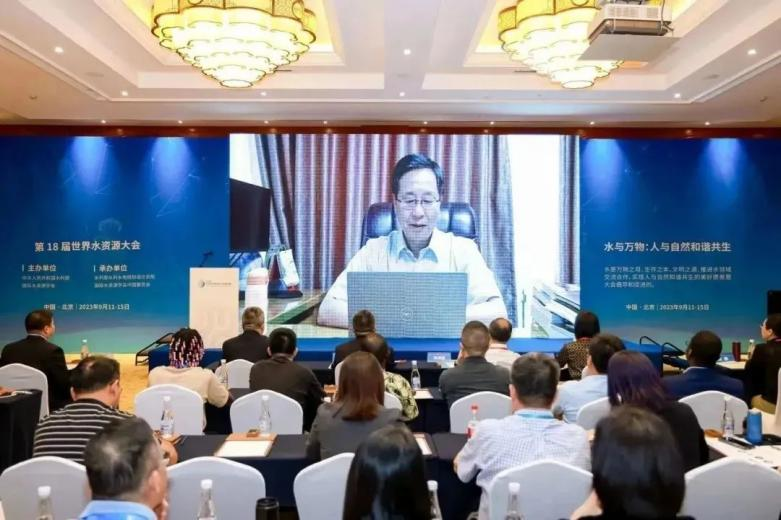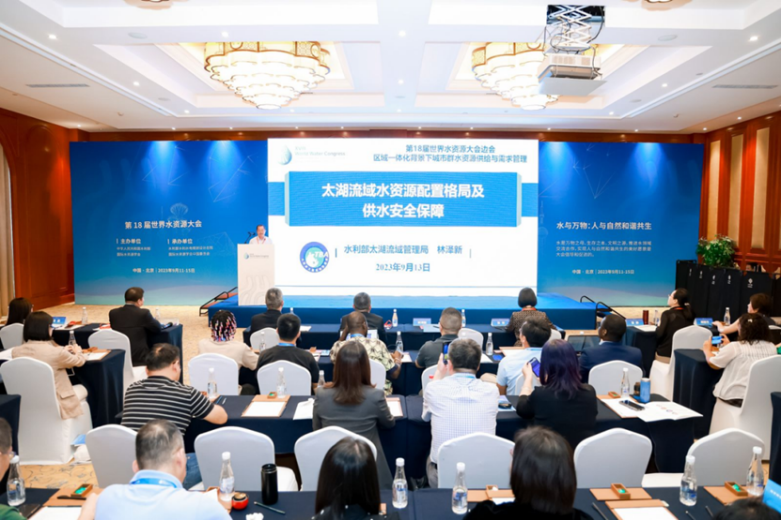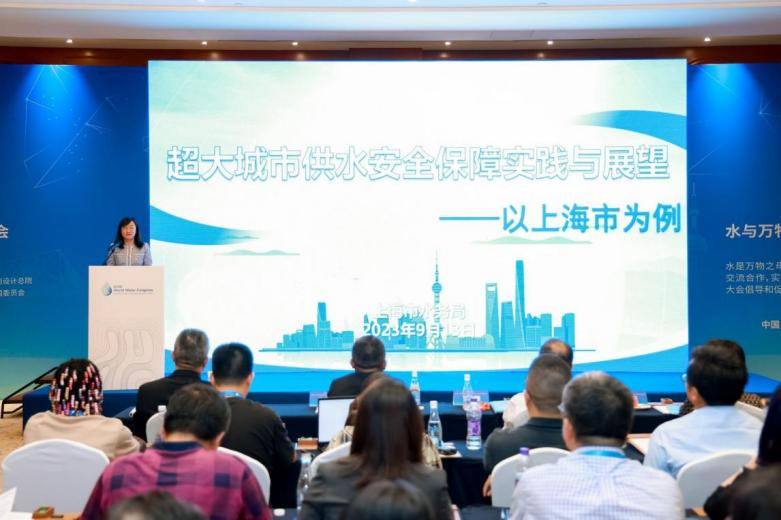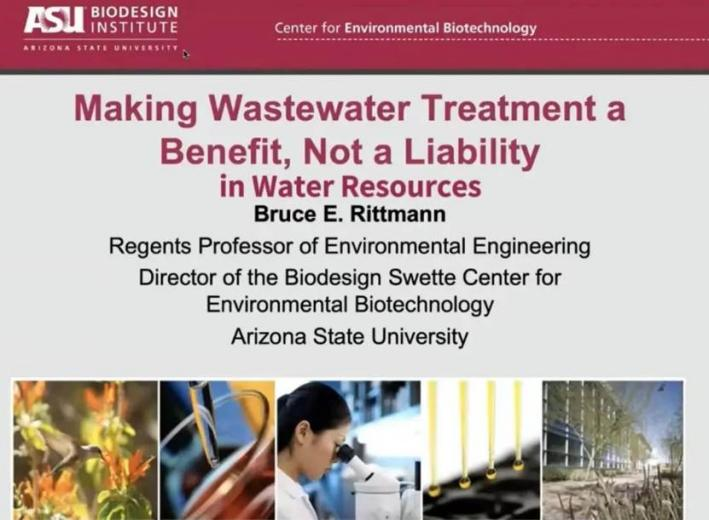The Key Laboratory of the Ministry of Water Resources for Urban Water Supply and Water Environment Management in the Yangtze River Delta participated in the organization of the 18th World Water Resources Congress - Side Meeting on Urban Agglomeration Water Supply and Demand Management under the Background of Regional Integration. On September 13, 2023, a side meeting of the 18th World Water Resources Congress, co-organized by the Key Laboratory of the Ministry of Water Resources for Urban Water Supply and Water Environment Management in the Yangtze River Delta, was held. Professor Xu Bin, Chairman of the College, served as the host and introduced a series of conferences. The conference invited seven top academicians and experts from China and abroad to exchange and share research results, practical experiences, and typical cases of urban agglomeration, water resource security, and smart water resource management.

Academician Qu Jiuhui of the Chinese Academy of Engineering introduced a green foundation for sustainable water resources based on the current development situation and policies at home and abroad.

Lin Zexin, Chief Engineer of the Taihu Basin Management Bureau of the Ministry of Water Resources, introduced the water resource allocation pattern and water supply security system in the Taihu Basin.

Gu Chen, Director of the Shanghai Water Supply Dispatching and Monitoring Center, introduced an urban overview of Shanghai, the basic situation of the city, its overall planning situation in 2035, and water supply security measures.

Bruce E. Rittmann, an academician at the National Academy of Engineering in the United States, introduced urgent challenges and suggestions for urban wastewater treatment in water resources.
This conference responds to the theme of the conference, “Water and Everything: Harmonious Coexistence of Man and Nature,” calling for continuous improvement of water resource utilization efficiency and benefits, more attention to comprehensive and systematic water governance, reduction of water and drought disasters, optimization of water resource allocation, protection of river and lake ecosystems, and maintenance of river health.